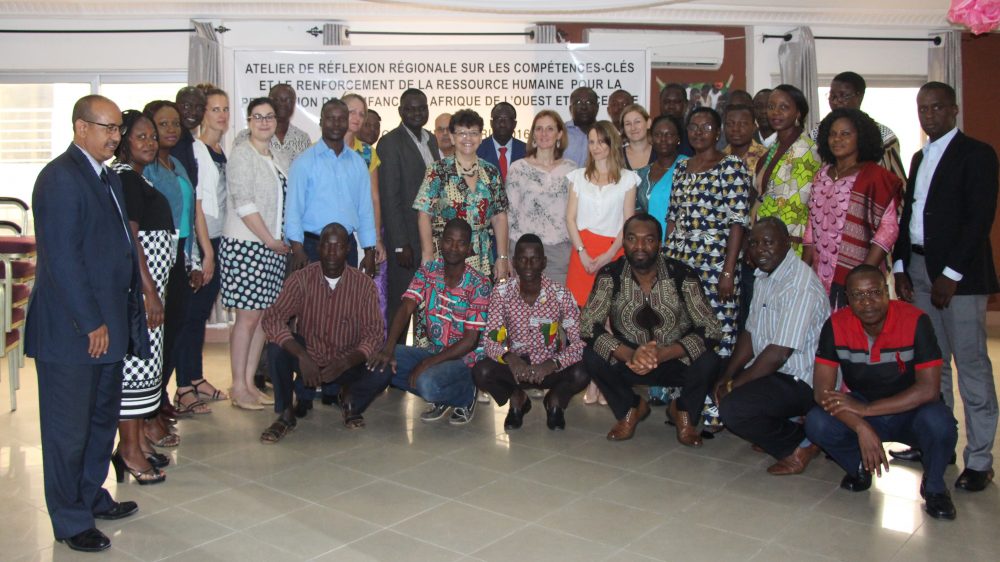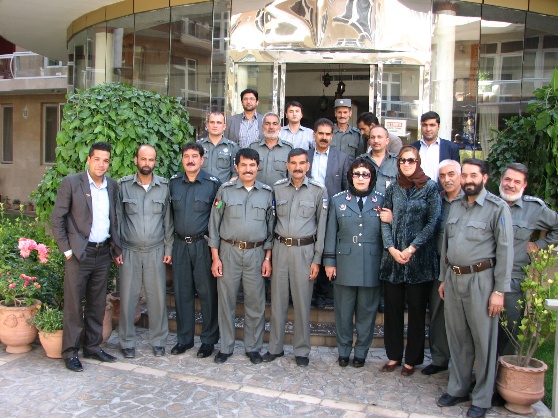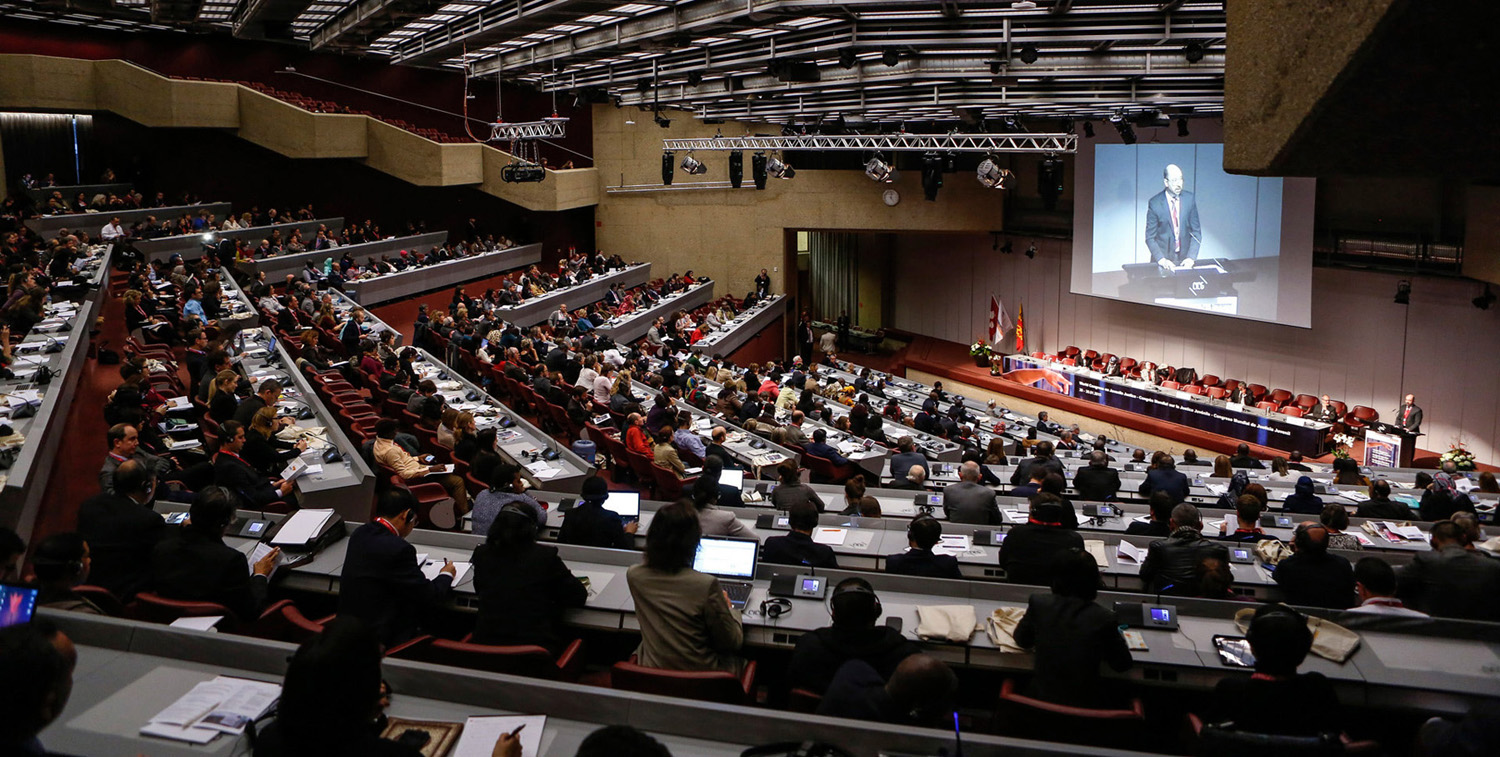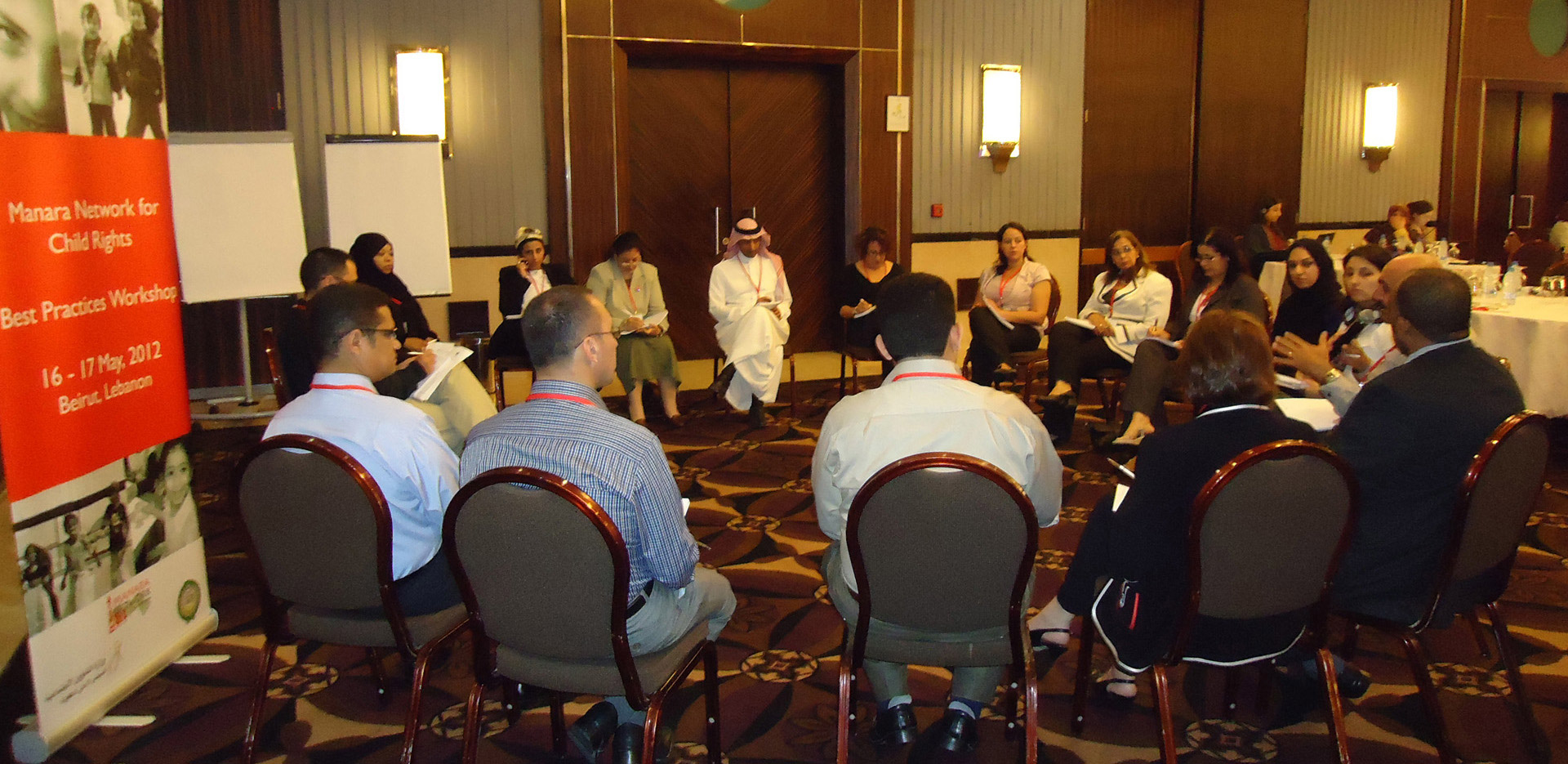Second regional brainstorming workshop on key competencies and strengthening human resources for child protection in west and central Africa

The IBCR’s initiative, flexibility and ongoing commitment to ensure that all vulnerable children in Chad can enjoy their rights, including the right to be protected against all forms of abuse, violence and discrimination..
ZARA RATOU, Director of Child Services, Ministère de la Femme, de la Protection de la Petite Enfance et de la Solidarité Nationale (Department of Women, Protection of Early Childhood and National Solidarity) (Chad)
Workshop duration : 12th to 15th April 2016
The mapping study of social work education offerings conducted in 2014 by the CPC Learning Network (“Social Service Workforce Training in the West and Central Africa Region”) found that there is a wide variation in the offering and quality of social work education available in the different countries of the region. Based on the study’s recommendations, the study sponsor UNICEF, the International Bureau for Children’s Rights (IBCR), Terre des hommes - Lausanne (Tdh) and Service Social International (SSI) convened to undertake, on behalf of the Groupe Régional sur la Protection de l’Enfance (GRPE, or Regional Group for Child Protection), an interagency initiative to enhance social work in the region.
Furthermore, this initiative is part of a collaborative momentum between the GRPE and ECOWAS that was solidified with an action plan stemming from the meeting between the ECOWAS Commissioner of Social Affairs and Gender and the GRPE held in Dakar on 14 July 14 2014.
As part of this joint project between SSI, Tdh, the IBCR and UNICEF, an initial meeting was held in Dakar in December 2014. Taking part were nine schools/universities from seven countries in the region (Côte d’Ivoire, Ghana (2), Benin, Burkina Faso, Guinea-Bissau, Senegal (2) and Mauritania). Other members of the GRPE, including ENDA TM, AMWCY and ECOWAS, were also invited to participate in the workshop.
This workshop represented the first step in the creation of a regional network for strengthening human resources and the social services offering in West and Central Africa and culminated in the adoption of a roadmap.
In accordance with this document, consultations/brainstorming sessions were led by partners in the following countries: Senegal and Guinea-Bissau (SSI); Benin, Burkina Faso, Burundi, Mali, Mauritania, Togo (Tdh); Togo, Burkina Faso, Chad and the Democratic Republic of Congo (IBCR) (Liens vers les rapports). Tdh also developed a proposal for a competency matrix of social workers (Lien vers la grille de compétences) based on the conclusions of those national consultations. This matrix was inspired by other documents and their approaches, namely the IBCR’s work on the key competencies of security forces working with children.
Later in this process, which continues to be guided by the recommendations of the study as well as by the national consultations, its partners were slated to organise a second regional workshop to support the creation of core competencies for social workers with the help of key stakeholders in each country.
And so in April 2016, the city of Cotonou in Benin welcomed eight national delegations for the second regional brainstorming workshop on key competencies and strengthening human resources for child protection in West and Central Africa.
Our goals :
As mentioned above, from one country in the region to another, and even within the same country, there is a very wide variation in the sphere of social action across all parameters (regulatory framework, institutional framework, resources, etc.). This disparity is particularly striking in human resources – the objective of this project – especially with regard to training, tasks, roles and responsibilities, work tools and methods, profiles of people who work in the sector, the quality of the results produced, and even the perception of these facets by the people involved.
Diversity in itself is not unwelcome; it holds numerous advantages, including the potential for mutual enrichment. The social sphere in countries of the subregion also possesses undeniable assets, not least of which is the internal child protection system.
In general, the countries involved share several points in common: similarities in the problems affecting children, the French language, a long history of collaboration on other plans (economic, defence and security, higher education and professional training, etc.).
Nevertheless, it must be acknowledged that the prevention of and response to risk factors threatening children in West and Central Africa stop far short of guaranteeing children the protection conditions they are entitled to according to applicable national, regional and international standards. Each stakeholder in the protection system shares his part of the responsibility in the achievement (or lack thereof) of the ultimate and common goal, which is the wellbeing of children and their harmonious development. With regard to social stakeholders, considering the very wide variation revealed in the aforementioned studies, a clear understanding of human resources that the social sphere can count on to play its role effectively and efficiently remains a challenge.
This joint project of SSI, Tdh, the IBCR and UNICEF focuses on human resources in social action and aims to capitalise on the assets, identify the needs and find solutions, particularly in the realm of building capacities and strengthening collaboration within countries and between countries of the subregion.
As part of the scheduled follow-up to previous activities in this project, the objectives of the second regional workshop were:
- Share the results of the different national consultations held since December 2014
- Identify avenues for enhanced collaboration, coordination and synergy between the different key groups of social work stakeholders for child protection in West and Central Africa
- Revise the roadmap on strengthening social work (stemming from the December 2014 workshop) and initiate brainstorming on key competencies in social work for child protection in West and Central Africa
Accomplishements
In addition to sharing and talking about the results of the national consultations, the workshop allowed participants to broaden the discussion on the groups of social stakeholders and collaboration between them, and to stop a proposal on the key competencies of social stakeholders in child protection. The meeting culminated in the adoption of follow-up documents for implementing the recommendations: national action plans in each country and a regional roadmap, all documented in one report.
- Intervention locations : Cotonu
- Project duration: 12 au 15 avril 2016
- Partners :
- UNICEF (West and Central Africa Regional Office)
- Terre des hommes
- Service Social International (SSI)
- AMWCY (Benin, Burkina, Senegal)
- Highlights:
- Eight delegations of African countries participated in the workshop: Benin, Burkina Faso, Côte d’Ivoire, Mauritania, Senegal, the Democratic Republic of Congo, Chad, Togo
- Fields of activity and expertise :
- Advocacy and institutional support








